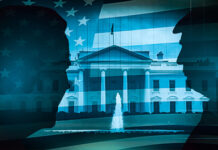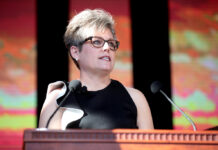
In a recent event that has sparked both concern and debate, Rep. Sheila Jackson Lee, known for her tenure on the House Science and Space Committees, made several scientifically inaccurate statements regarding astronomy.
During an engagement at a high school, she described the moon as being "made up mostly of gases" and possessing its own energy at night. These remarks have raised eyebrows, given the moon's solid composition and its reflective, not generative, relationship with light.
NEW: Democrat Rep. Sheila Jackson Lee says the "full moon" is "mostly made up of gases" while speaking in front of a bunch of high schoolers.
"A full moon is that complete rounded circle, which is made up mostly of gases."
Oh, it gets better. After getting called out for her… pic.twitter.com/jVFW6yUq1N
— Collin Rugg (@CollinRugg) April 9, 2024
Jackson Lee's comments did not stop at the moon's composition. She further suggested that, unlike the sun, the moon is more approachable due to its supposed lesser heat and gaseous state. This comparison starkly misrepresents the fundamental nature of these celestial bodies, as the moon does not emit its own light or heat but rather reflects sunlight. Her assertion that humans could potentially live on the moon due to its gaseous atmosphere directly contradicts NASA's explanations regarding the moon's inhospitable environment.
This is not the first instance of Jackson Lee's astronomical confusions coming to light. A notable episode from her past involved a mix-up between the moon and Mars, where she inquired about the American flag Neil Armstrong planted – but on Mars instead of the moon. Such errors, especially coming from a Yale graduate and a member of relevant congressional committees, underscore the critical need for accurate scientific knowledge among public figures.
Sheila Jackson Lee said that the Moon is made up of gases but we can live on it because the gases are "manageable." Now she claims she was talking about the Sun, which would mean that she thinks we can live on the Sun. So her excuse is that she didn't mean to say that dumb thing.… https://t.co/iquRHyNQIo
— The Honorable Matt Walsh (@MattWalshBlog) April 10, 2024
The implications of these inaccuracies extend beyond mere factual errors; they touch upon the broader issue of scientific literacy in education and public discourse. When influential figures misrepresent basic scientific facts, it risks undermining public understanding and trust in science. This is particularly concerning in an era where "trust the science" has become a rallying cry for addressing global challenges, from climate change to public health crises.
Moreover, Jackson Lee's attempt to use special eclipse glasses, which resulted in confusion and amusement among observers, serves as a metaphor for the larger issue at hand. It's not just about understanding the specifics of astronomy but about fostering a deeper respect and comprehension of science as a whole.
As we navigate an increasingly complex world, the importance of scientific literacy cannot be overstated. It is essential for informed decision-making, critical thinking, and fostering innovation. Public figures, especially those with influence over educational and scientific policies, bear a significant responsibility in this regard.
In conclusion, while everyone can make mistakes, repeated misunderstandings of fundamental scientific concepts by those in positions of power highlight a pressing need for better science education and communication. As we strive towards a more scientifically literate society, let us remember the value of accuracy, curiosity, and humility in our pursuit of knowledge.












Sheila Jackson Lee and Ocassio Cortez are 2 of the biggest morons in Bidens’ administration ….each competing to see who takes first place as the most ignorant fool out there…today…SJL wins that prize!!!!
She is a Dumcocrat. What do you expect.
that old hen is dumb ass , she has a IQ some where between headcheese and a toaster oven.
what the hell is going on with our counrty. SMFH
She and Hank Thompson, D-LA, (he though Guam would capsize if we stationed too many sailors there) must certainly share the distinction of Dumbest Member of Congress.
Are the people in their districts actually so stupid that they can’t recognize an idiot when you see one? How do these two keep getting re-elected? It doesn’t bode well for our nation, does it?